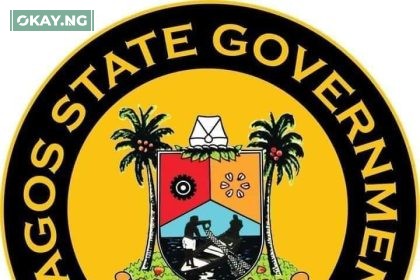In a landmark ruling that underscores the growing importance of digital rights and consumer protection in Nigeria, the Federal Competition and Consumer Protection Commission (FCCPC) Tribunal has firmly upheld a staggering $220 million fine levied against tech giant Meta Platforms Inc. and its messaging platform, WhatsApp. The tribunal’s decision, delivered by a three-member panel led by Thomas Okosun, not only validates the FCCPC’s earlier findings of discriminatory data practices against Nigerian users but also mandates significant changes to Meta’s data handling policies within the country. Furthermore, the tribunal ordered Meta to reimburse the FCCPC $35,000, covering the costs incurred during its thorough investigation.
The initial fine, imposed by the FCCPC in July 2024, stemmed from extensive investigations that revealed Meta’s alleged breaches of Nigerian data privacy regulations. The Commission found Meta culpable on multiple grounds, including denying Nigerian users their right to self-determination regarding their data, unauthorized transfer and sharing of user information (including cross-border storage), discriminatory treatment compared to users in other regions, abuse of its dominant market position, and the controversial practice of tying and bundling services.
Meta vehemently contested the fine, presenting 22 grounds for appeal. The tech behemoth argued that the FCCPC’s directives were ambiguous, technically unachievable, and lacked legal basis under Nigerian law. Meta also contended that it was denied a fair hearing and was not given a proper opportunity to understand the calculation of the substantial fine.
However, the tribunal resoundingly dismissed these claims. Presiding panel member Okosun stated unequivocally that Meta and WhatsApp were “given ample opportunity to be heard” and failed to provide compelling evidence that would warrant overturning the FCCPC’s well-substantiated findings. “The appellants were given ample opportunity to be heard,” Okosun affirmed, directly addressing and rejecting Meta’s allegations of procedural unfairness.
According to the FCCPC, the hefty fine was a direct consequence of in-depth investigations that unearthed what the commission described as “exploitative practices” by Meta. These practices allegedly granted unauthorized access to the personal data of Nigerian users, a clear violation of constitutional privacy guarantees and a reinforcement of existing global data governance inequalities.
Read Also: EU Slaps Apple and Meta with Landmark DMA Fines Amidst Rising US Trade Tensions
During the proceedings, Meta’s legal representative, Professor Gbolahan Elias (SAN), argued that the FCCPC was unduly relying on legal frameworks from other jurisdictions that hold no direct applicability in Nigeria. “There is no abuse of dominance since users can choose from other providers such as TikTok and Google Meet,” Professor Elias asserted, labeling the FCCPC’s directives as “burdensome and excessive.”
Conversely, Babatunde Irukera (SAN), the former executive vice chairman of the FCCPC, passionately defended the Commission’s actions. He clarified that while rulings from foreign courts are not legally binding in Nigeria, they offer persuasive and relevant insights in similar legal contexts. Irukera emphasized that the fine was not intended as a punitive measure but rather as a corrective action aimed at eradicating discriminatory practices and ensuring the fundamental right of user consent.
The tribunal sided firmly with the FCCPC, unequivocally affirming the Commission’s legal authority in this matter. The panel explicitly noted that the final and supplementary orders issued by the FCCPC were executed in full compliance with the FCCPC Act and Nigeria’s Evidence Act. Furthermore, the tribunal concurred with the FCCPC’s finding that Meta’s practice of transferring user data to third parties without obtaining explicit consent constituted a clear violation of Nigeria’s data protection laws.
“The tribunal finds no error in the overall orders of the FCCPC,” the panel declared in its ruling. “The administrative penalties were lawfully imposed.”
Beyond simply upholding the substantial financial penalty, the tribunal issued a series of crucial compliance directives that Meta must adhere to. These directives mandate that Meta must immediately reinstate Nigerian users’ rights to exercise control over how their personal data is shared. This includes reverting to its 2016 data-sharing policy, which offered users greater autonomy.
Within the next ten days, Meta is also required to submit a comprehensive proposed data policy to both the FCCPC and the Nigeria Data Protection Commission (NDPC) and subsequently make this policy publicly accessible.
Furthermore, the tribunal explicitly ordered Meta to cease the practice of tying WhatsApp data to Facebook or any other third-party platform without obtaining clear and informed consent from users. The company is also obligated to provide tangible evidence of its compliance with these directives, with a formal compliance letter due no later than July 1, 2025.
This ruling against Meta in Nigeria adds to the growing global scrutiny and regulatory pressure the tech giant faces regarding its data handling practices. Notably, in 2023, Meta was slapped with a record-breaking €1.2 billion fine by the European Data Protection Board for breaches of the European Union’s stringent GDPR privacy regulations, highlighting a worldwide trend towards greater accountability for how tech companies manage user data.
This decisive action by the Nigerian tribunal sends a clear message to global tech companies operating within its borders: the protection of Nigerian users’ data privacy is paramount, and discriminatory practices will not be tolerated. This ruling could serve as a significant precedent for future data protection cases in Nigeria and across the African continent, potentially empowering users and strengthening regulatory frameworks in the digital age.













